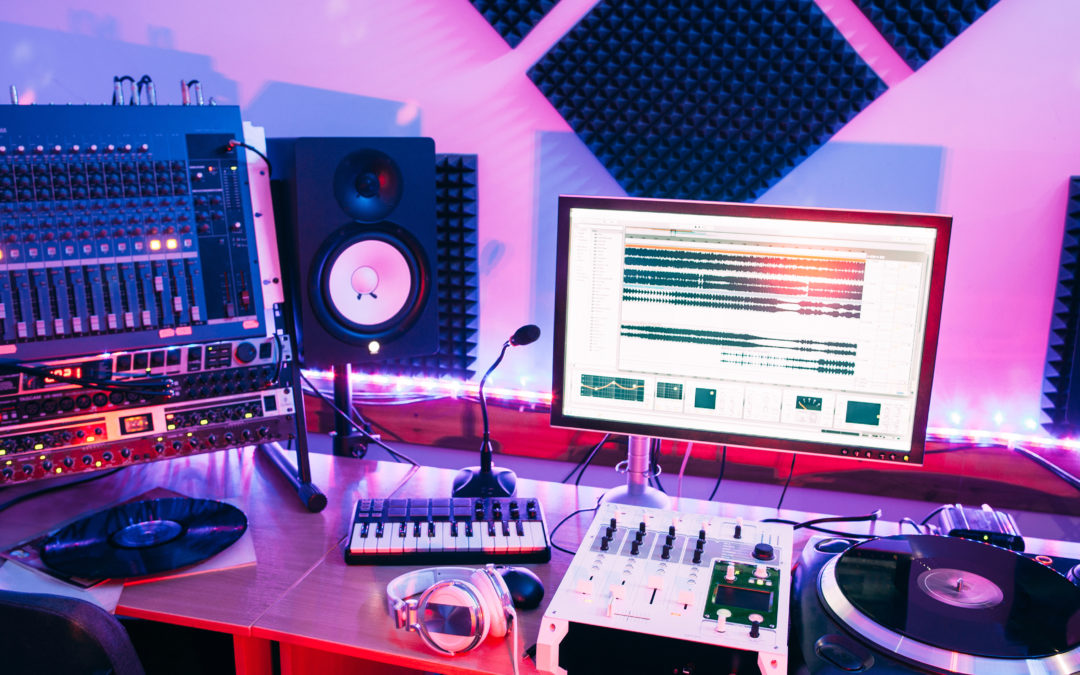Introduction to Music Technology

What is Music Technology?
- The use of technology to create, perform, analyze, and distribute music
- Combines elements of:
- Musical creativity
- Scientific understanding
- Technological innovation
Fields Intersecting with Music Technology
- Audio Engineering — Broadcast/Sound Engineering Technician (BLS profile).
- Music Production — Music Producer (Berklee Online overview).
- Acoustics — Senior Acoustic Engineer (Acoustical Society of America example listing).
- Computer Science — Software Developer (BLS profile).
- Electronic Engineering — Electrical and Electronics Engineer (BLS profile).
- Music Performance — Musicians and Singers (BLS profile).
- Sound Design — Sound Designer (Prospects job profile).
- Interactive Media — Interactive Media Specialist (Berklee career role).
- Music Education — Consider a Career in Music Education (NAfME).
- Music Therapy — Careers in Music Therapy (AMTA).
- Game Audio — Sound Designer (PlayStation example posting).
- Virtual and Augmented Reality — Audio Software Engineer, AR/VR (Meta Reality Labs).
Quick Activity: Exploring 120 Years of Electronic Music
- Visit 120years.net
- Spend a few minutes browsing the site
- Pick one instrument, invention, or story that stands out to you
Step 2: Small Group Sharing
Turn to a partner or small group
Share what you found:
- What is it called and when was it made?
- What stood out to you (design, sound, history)?
- Can you connect it to anything you already know about music or sound design?
Step 3: Whole Class Discussion
Volunteers share highlights
Guiding questions:
- Did anyone find an instrument that feels like an ancestor to today’s tech?
- Did you notice recurring themes in invention or use?
- Which ones seemed totally bizarre or impractical?
Hardware: Sound Capture and Production
- Microphones: Convert sound waves into electrical signals
- Dynamic, Condenser, Ribbon types
- Loudspeakers: Convert electrical signals back into sound waves
- Pickups:
- Magnetic (Coil): For electric guitars and basses
- Piezoelectric: For acoustic instruments
- Tonewheel Organ: Early electromechanical instrument
Electronic Instruments
Theremin
- One of the earliest electronic instruments
- Controlled without physical contact
Synthesizers
- Generate sound electronically
- Extensive sound-shaping capabilities
- Analog vs. Digital synthesizers
Buchla Synthesizer Demo
Software Tools
- Software Synthesizers: Virtual instruments simulating hardware or creating new sounds
- Sample Libraries: Collections of pre-recorded sounds for music creation
- Audio Effects: Digital signal processing tools for altering sound
Digital Audio Workstations (DAWs)
- Ableton Live: Popular for electronic music and live performance
- Reaper: Flexible and cost-effective
- Pro Tools: Industry standard for recording and post-production
- Logic Pro: Widely used on Mac for music production
- FL Studio: Popular for beat-making and electronic music production
Emerging Technologies in Music
- AI-assisted composition and production
- Virtual and Augmented Reality in music creation and performance
- New interfaces for musical expression (NIME)
NIME: Laptop Orchestra
- Combines live performance with computer-generated sound
- Musicians use laptops and other digital instruments as primary tools
Activities in Music Technology
- Sequencing: Arranging musical elements for playback
- Composing: Creating original music using various technologies
- Mixing: Balancing and enhancing individual tracks in a recording
- Mastering: Preparing and transferring audio from a mix to a data storage device
- Live Sound: Managing audio during live performances
- Programming: Writing code to create or manipulate sound
- Live Coding: Performing music by writing and modifying code in real-time